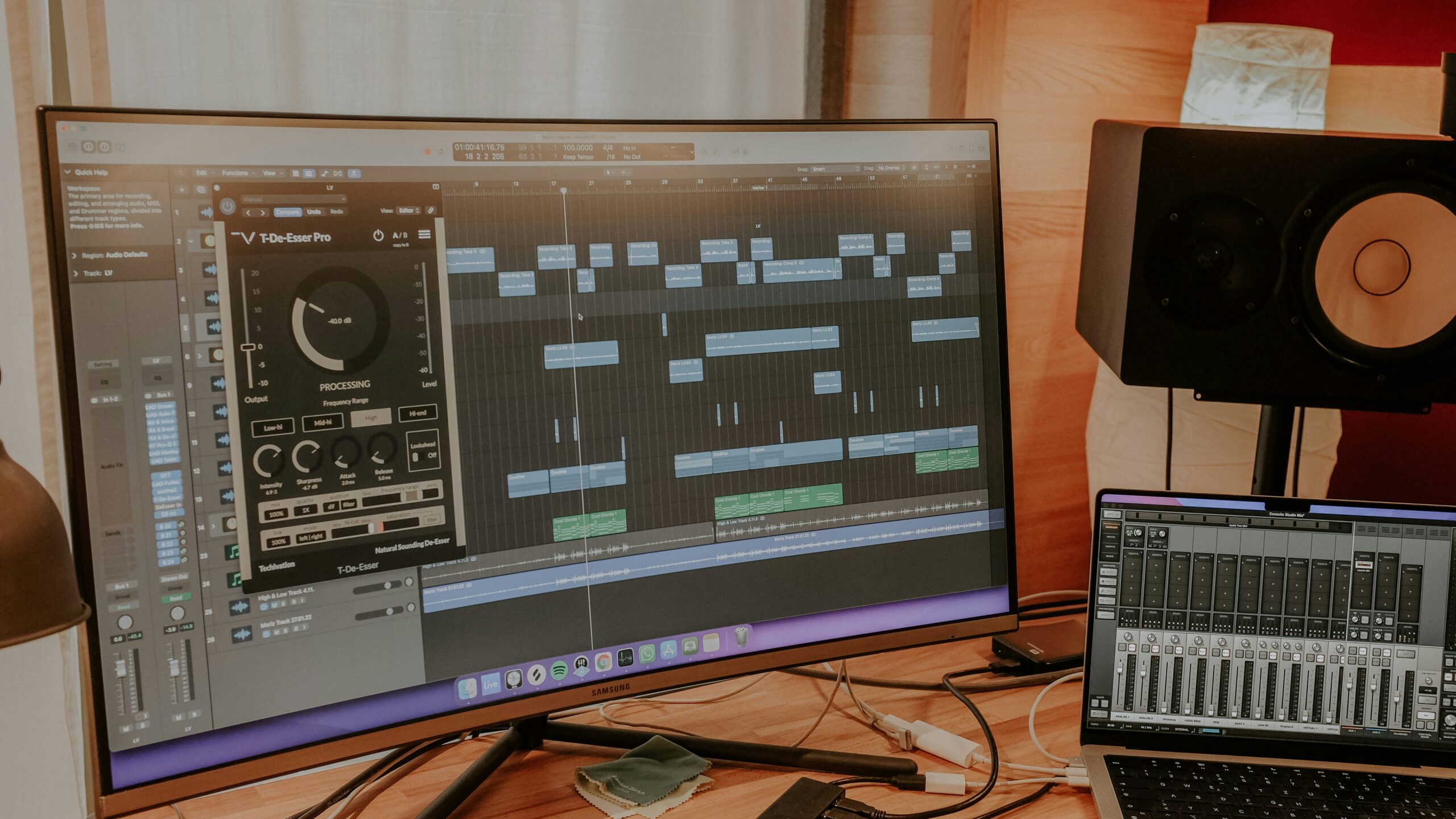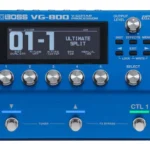Before you can start promoting your music and gaining an audience, you first need to write and record that music. And one of the best things about being a musician these days is how easy it is to create professional sounding recordings with music recording software.
In days past the bar to entry was incredibly high, as the only way to professionally record a song was in a recoding studio using analog tape, which was very expensive. But, the rise of digital music recording software, aka DAWs (digital audio workstation) in the late 90’s made it much easier and much more affordable to record and edit music. At first the sound quality of these DAWs was a bit lacking when compared to traditional analog tape, but it’s improved drastically and one would be hard pressed to tell the difference nowadays.
As the software and computer technology has advanced, now virtually anyone can record a professional sounding piece of music by themselves in their bedroom at a fraction of the price it used to cost. Hence the rise of bedroom indie pop. So, as a musician looking to start recording your creations, where do you start? What’s the best music recording software out there? We’re here to help with a list of the top 5 DAWs in 2025 that are perfect for musicians just starting out, along with their pros and cons:
Top 5 Music Recording Software in 2025
1. Ableton Live
Ableton Live is renowned for its unique workflow, making it ideal for electronic music production and live performances. Its intuitive interface allows you to experiment and create music in a non-linear fashion, which is perfect for beginners who want to explore their creativity without feeling constrained.
Key Features:
- Session View for improvisation and live performance
- Extensive library of sounds and instruments
- Seamless integration with hardware controllers
Pros:
- Excellent for live performances
- Intuitive and flexible workflow
- Strong community and support
Cons:
- Can be expensive
- Steeper learning curve for traditional recording
2. Logic Pro
Logic Pro is a powerhouse DAW that offers a wide range of tools and features, making it highly versatile. It’s particularly popular among Mac users due to its seamless integration with Apple’s ecosystem.
Key Features:
- Comprehensive suite of virtual instruments and effects
- User-friendly interface with powerful editing capabilities
- Advanced MIDI editing and scoring tools
Pros:
- Great value for the price
- Extensive sound library
- Seamless integration with macOS
Cons:
- Mac-only software
- Can be overwhelming for beginners
3. Pro Tools
Pro Tools is the industry standard for audio recording and is widely used in professional studios. While it may have a steeper learning curve, its robust features make it a valuable tool for serious musicians.
Key Features:
- High-quality audio recording and editing
- Extensive plugin support
- Professional mixing and mastering tools
Pros:
- Industry-standard software
- Powerful editing capabilities
- Excellent for large projects
Cons:
- Expensive
- Steep learning curve
4. FL Studio
FL Studio is known for its intuitive and accessible interface, making it a favorite among beginners and beatmakers. Its pattern-based workflow is easy to grasp, allowing you to start creating music quickly.
Key Features:
- Step sequencer for quick beat creation
- Wide range of virtual instruments and effects
- Lifetime free updates
Pros:
- Easy to learn
- Affordable
- Strong community support
Cons:
- Limited audio recording capabilities
- Can be less intuitive for traditional recording
5. Studio One Pro
Studio One offers a flexible and smooth workflow, making it a strong contender for various production needs. Its drag-and-drop functionality simplifies the music creation process, which is great for those just starting out.
Key Features:
- Integrated mastering suite
- Intuitive drag-and-drop interface
- Powerful MIDI and audio editing tools
Pros:
- User-friendly interface
- Comprehensive feature set
- Great for both beginners and advanced users
Cons:
- Can be resource-intensive
- Some advanced features may require additional purchases
Learn more about Studio One Pro
Honorable Mention
Reaper
Reaper is a highly versatile and affordable DAW. Known for its extensive customizability, Reaper allows users to tailor the interface and workflow to their specific needs, making it suitable for a wide range of audio production tasks.
Pros:
- Highly customizable
- Affordable
- Lightweight and efficient
- Extensive plugin support
- Strong community support
Cons:
- Steep learning curve
- No built-in instruments
- Basic stock plugin UIs
- Requires extensions for full potential
Budget Option
GarageBand
No list would be complete without the OG of indie DAWs – Apple’s GarageBand. GarageBand is a fully equipped music creation studio that comes free with every Mac. It’s designed to be user-friendly, making it an excellent choice for beginners. The intuitive interface allows users to easily learn, play, record, and share their music. Additionally, GarageBand provides interactive lessons for guitar and piano, helping users improve their skills while creating music.
Pros:
- Free with every Mac
- User-friendly and intuitive interface
- Comprehensive sound library
- Interactive lessons for guitar and piano
- Supports 24-bit recording and third-party plugins
Cons:
- Limited advanced features compared to professional DAWs
- No mixing console view
- Only available on macOS
Choosing the right music recording software is a crucial step in your music journey. Each of these Digital audio workstations offers unique features and benefits, so consider what aligns best with your musical goals and workflow preferences. Hopefully this list helps you find a DAW that works for you and your music!




